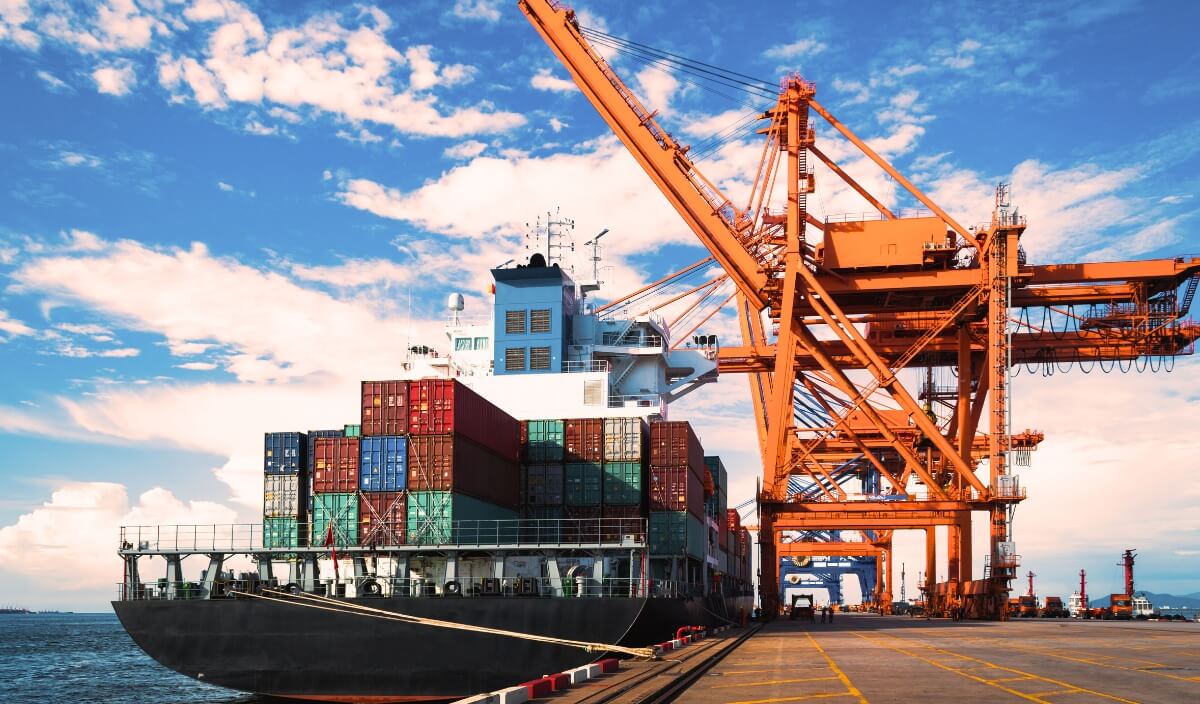
Are you aiming to expand your business’s operations overseas and tap into new markets in 2024? Then this is where investing in an international shipping strategy comes in handy. The burgeoning world of e-commerce and escalating globalization have provided businesses of all scales with opportunities to unlock fresh revenue streams.
However, international shipping poses its own set of challenges. Most enterprises face numerous obstacles in shipping overseas, from undergoing customs procedures to tracking orders during transit. The key to safeguarding your business, reputation, and profits as you venture into a global brand is the implementation of the right shipping strategy.
Broaden Your Understanding
Know More About Customs Regulations
Check Out Various Shipping Methods
Use the Right Technology
Work with a Dependable Global Freight Forwarder
Enhance Packaging and Labeling Efficiency
Ensure End-to-End Visibility
Choose the Right Insurance
Partner with TFI for Your International Shipping Needs
Here are some of our insider recommendations for optimizing your international shipping methods in 2024 and beyond.
Broaden Your Understanding
Know More About Customs Regulations
Following your acquisition of knowledge regarding the terms prevalent in the international shipping arena, it becomes imperative to consider the distinct challenges encountered when shipping products to each specific new region. Each country and territory maintains particular regulations concerning the types of products permissible for import and export, the requisite duties, and the documentation essential for compliance.
Collaborating with appropriate partners can be advantageous in this regard, as numerous freight forwarders and third-party logistics companies specialize in assisting with customs procedures. However, it is also advisable to familiarize yourself with the diverse customs regulations applicable in various regions. Companies like DHL provide insightful guides tailored for beginners venturing into international shipping.
Check Out Various Shipping Methods
Approximately 80% of globally transported goods rely on ocean freight. Nevertheless, a variety of alternatives exist for transporting your goods, encompassing land and air freight, as well as multimodal options. The optimal solution for your specific requirements will hinge on factors such as costs, transit times, and the nature of your cargo.For instance, air freight boasts remarkable speed, while sea freight tends to be more cost-effective for larger shipments. Additionally, considerations like the distinction between FCL (Full Container Load) and LCL (Less than Container Load) become relevant based on the volume of inventory you intend to transport.
Use the Right Technology
In the contemporary business landscape, leveraging the right technology can significantly optimize various business processes. Inventory management software, for instance, proves invaluable for tracking stock levels, analyzing demand patterns, and refining replenishment cycles. This software enables the streamlining of order processing, reducing the likelihood of stockouts, and enhancing overall supply chain efficiency. Intelligent tools are also available to assist in predicting and forecasting demand in advance, devising more effective strategies for product distribution overseas. Furthermore, these tools offer robust reporting features that allow you to monitor and manage your business operations effectively.
Work with a Dependable Global Freight Forwarder
Establishing partnerships with the right entities is crucial for refining your international shipping strategy, curbing costs, and ensuring efficiency, with freight forwarders ranking among the most valuable collaborators. They facilitate connections with airlines and shipping companies, providing access to cost-effective rates and assisting with documentation and customs clearance.Opting to collaborate with a digital freight forwarder can be particularly advantageous for many businesses. These companies furnish access to online platforms that enable instant retrieval of real-time shipping rates, efficient booking of shipments, and seamless order tracking, minimizing the delays associated with manual processes.
Enhance Packaging and Labeling Efficiency
Just as having the appropriate documentation is vital for seamless shipping, it is equally crucial to ensure that your products are packaged and labeled accurately, adhering to regulatory guidelines. Investing in high-quality packaging and precise labeling is essential to safeguard your goods from damage and maintain the integrity of your business reputation.Carefully consider the unique requirements of your products. For example, some items may necessitate storage in containers equipped with temperature management features. Ensure that your teams are equipped with standardized operating procedures to adhere to when packaging and labeling each shipment.
Better yet, find a reputable warehouse that will offer you comprehensive value-added services. This will help you save time and effort while eliminating costly errors along the way.
Ensure End-to-End Visibility
A crucial aspect of optimizing your international shipping strategy is maintaining comprehensive supply chain visibility. The greater the understanding you possess about your inventory, processes, and products, the more effectively you can mitigate risks and anticipate potential challenges.Harness advanced tracking technologies provided by your freight forwarder or other partners to enable real-time monitoring of shipment progress. Additionally, it’s crucial to utilize barcode scanning, RFID technology, and GPS tracking systems to oversee the movement of inventory within warehouses.
Choose the Right Insurance
Ultimately, even with meticulous efforts to safeguard your goods and shipments during transit, unforeseen issues can still arise. Supply chains are susceptible to a myriad of risks, many of which are beyond the control of business leaders. Nevertheless, you can fortify your products by making a strategic investment in the right insurance.A comprehensive insurance policy will shield your company from the ramifications of issues such as accidents, theft, and natural disasters. Seek guidance from your partners in the supply chain domain regarding the optimal level of coverage and recommended insurance providers. However, it is essential to conduct your own due diligence to ensure the most suitable insurance solution for your specific needs.
Partner with TFI for Your International Shipping Needs
Venturing into international shipping is imperative if you aim to cater to a wider global customer base. Nonetheless, embarking on expansion across new borders and geographies presents numerous distinctive challenges. It is vital to ensure that you have a well-crafted plan for your shipping strategy.By implementing the aforementioned steps, you can mitigate risks to your business and products, trim unnecessary costs, and enhance your reputation among your target audience. This strategic approach will contribute to the overall success of your international shipping endeavors.
However, nothing beats working with a reliable global freight forwarder that has a proven track record in providing 360-degree logistics solutions. TFI boasts over 30 years of experience in bringing success to its clients and partners worldwide.
Get in touch with our experts to know how you can take the first step in enhancing your global shipping efficiency in 2024 and beyond!
